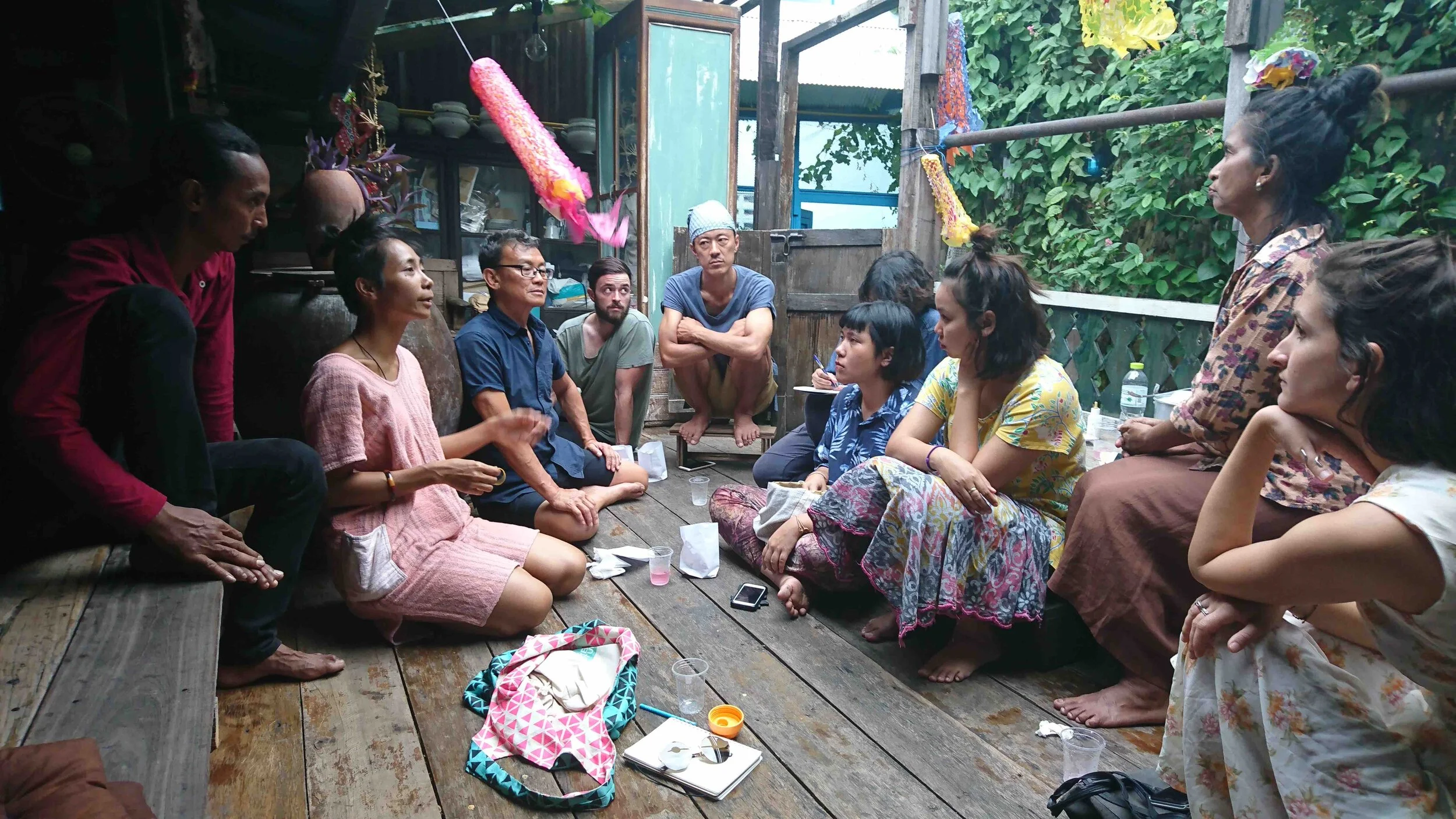Buffalo Field Festival
November 30 - December 1, 2018 / November 30 - December 1, 2019
“Nang Loeng is a long-standing community in the Old Town of Bangkok, an important node of exchange when people arrived more than 100 years ago from many different places and cultural backgrounds. It was originally called the Sanam Kwai community, Sanam Kwai meaning 'field of buffalos' because there were many buffalos living there when there were only a few houses. Our 'Buffalo Field' recalls the history of Nang Loeng, with the original forces of life that created this place, but also the way something is awakening in the spirit of local people and their culture.”
(2019 festival promo)
Buffalo Field is a community-based performing arts festival that focusses on site-specificity and social practice in the historic area of Nang Loeng, Bangkok. The festival is produced by Openspace, as a collaboration between Co-Founders Michael Hornblow (Artistic Director), Ploy Yamtree (Festival Producer), and Community Leaders Dang Sue Welployngam and Nammon Welployngam from the E-Lerng Artists Group. Now in its third year, Buffalo Field invited 8 international artists and 14 Thai artists from Bangkok, to work with local people and perform over two days and nights. Performing in the street, back alleys and shophouses during the day, the festival program culminated each night in a very special area - behind the local temple along the columbarium wall where the ashes and portraits of past generations are kept.
We also ran a 4-day Local Studio, as a community discussion forum and creative development process, with local and international design academics working alongside residents and community leaders. This explored three festival themes – Sustenance, Settlement, and Social fabric. Studio outcomes were presented at the festival the following week, including a mobile micro-farm prototype, settlement design games, and several socially-engaged performances on the street.
Publication:
“Of Buffalo… Notes from the Field”, Techniques Journal, Bordering Issue, Center for Philosophical Technologies, Arizona State University, 2022



















